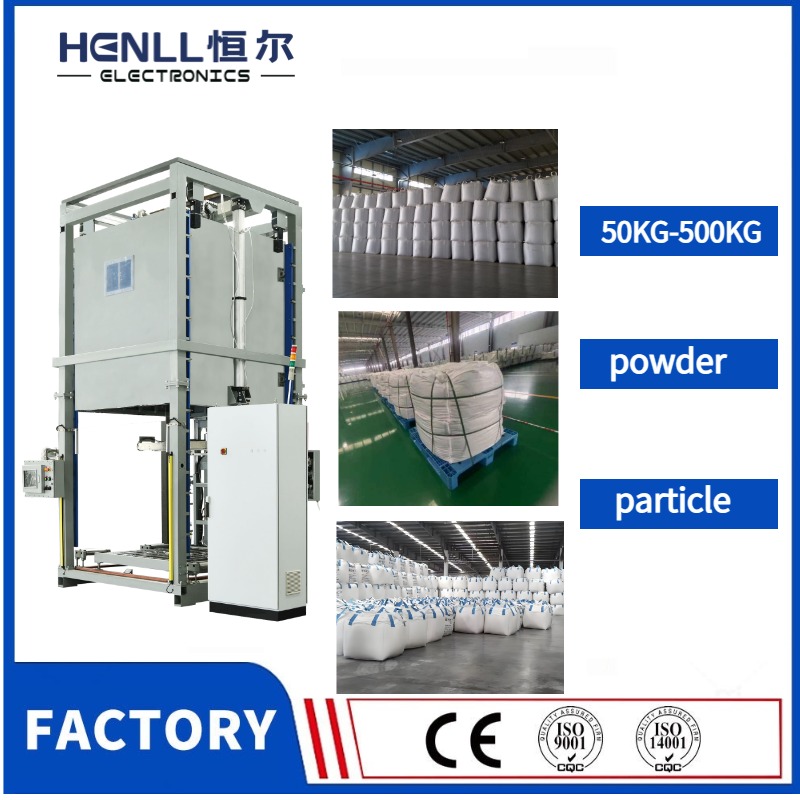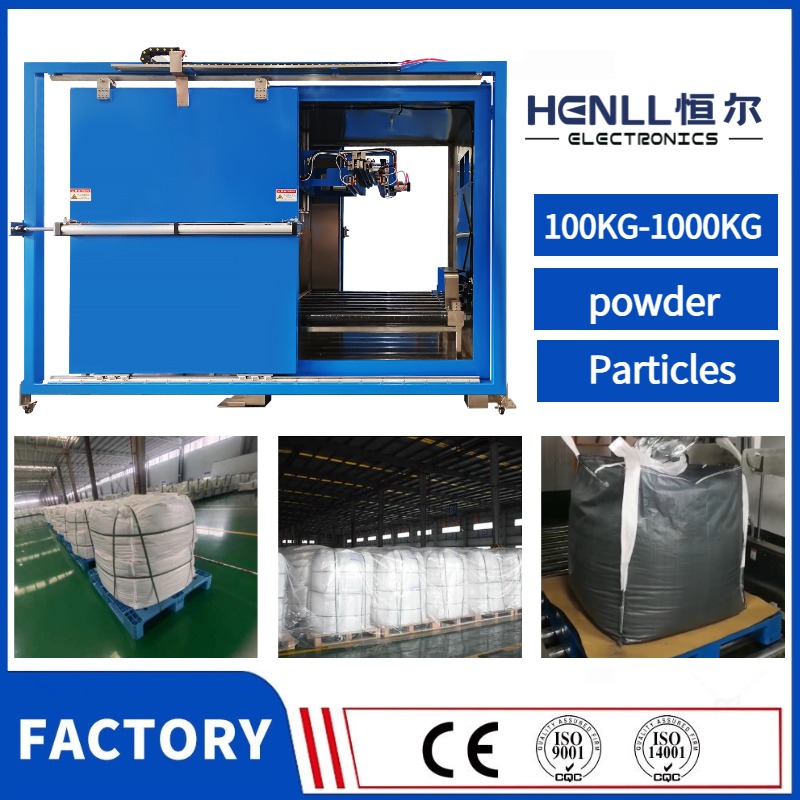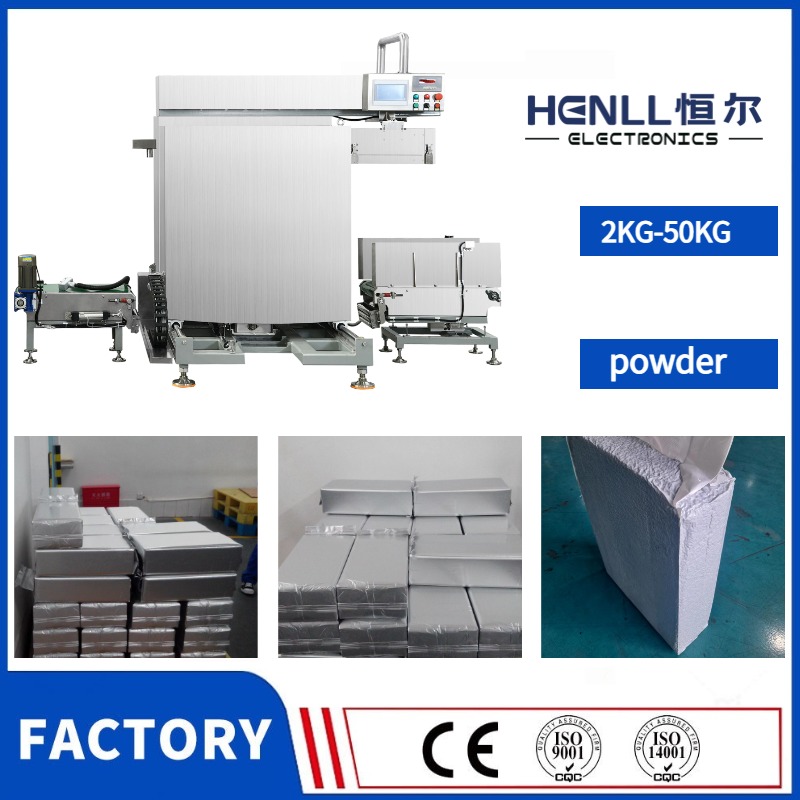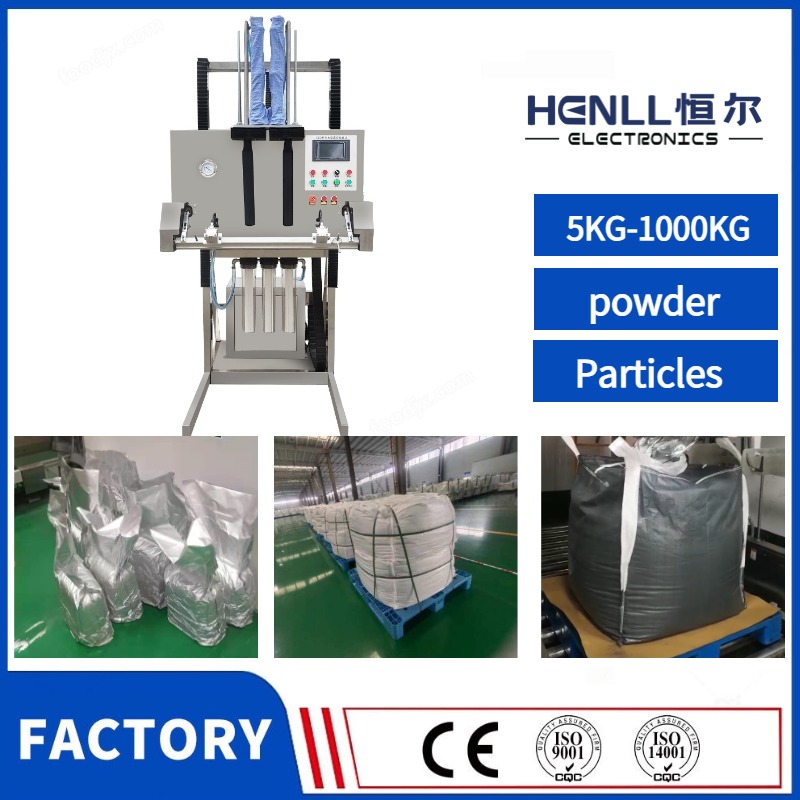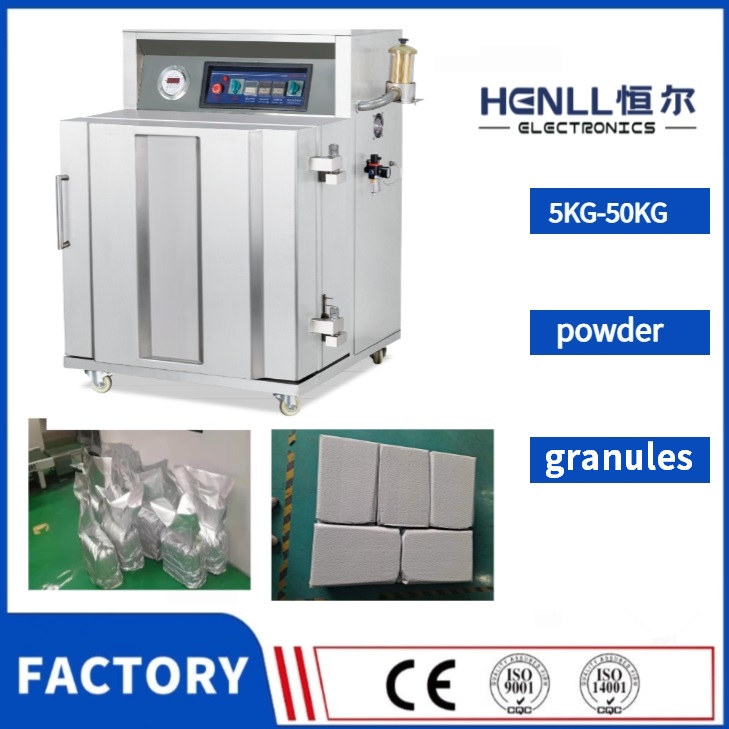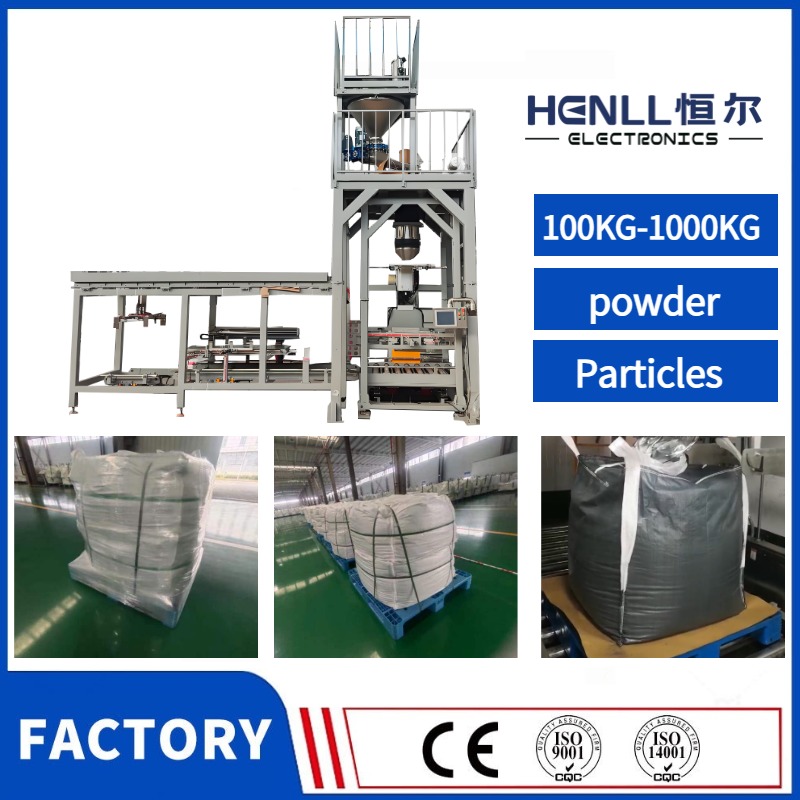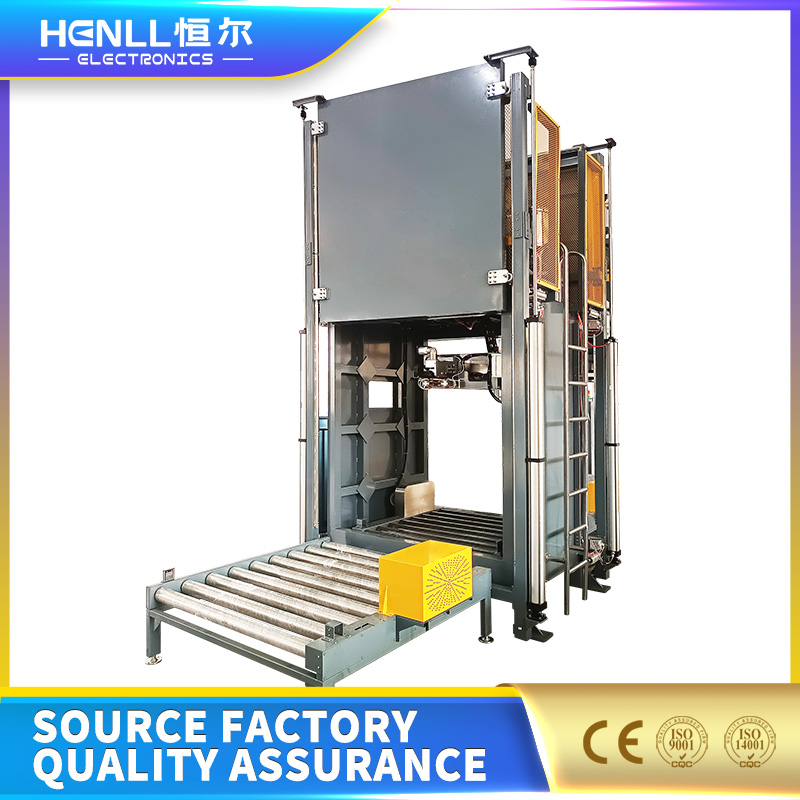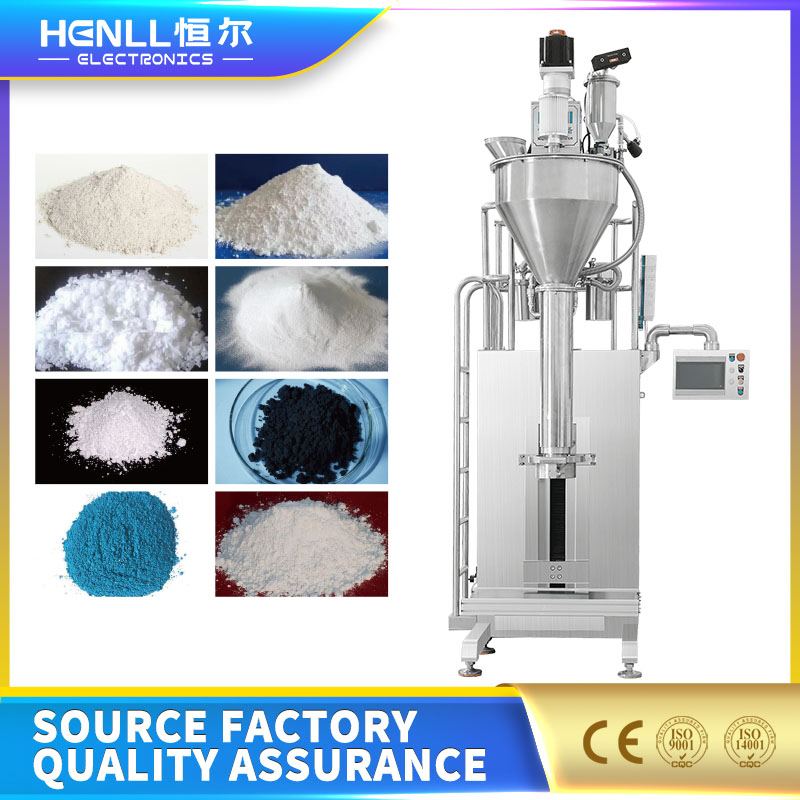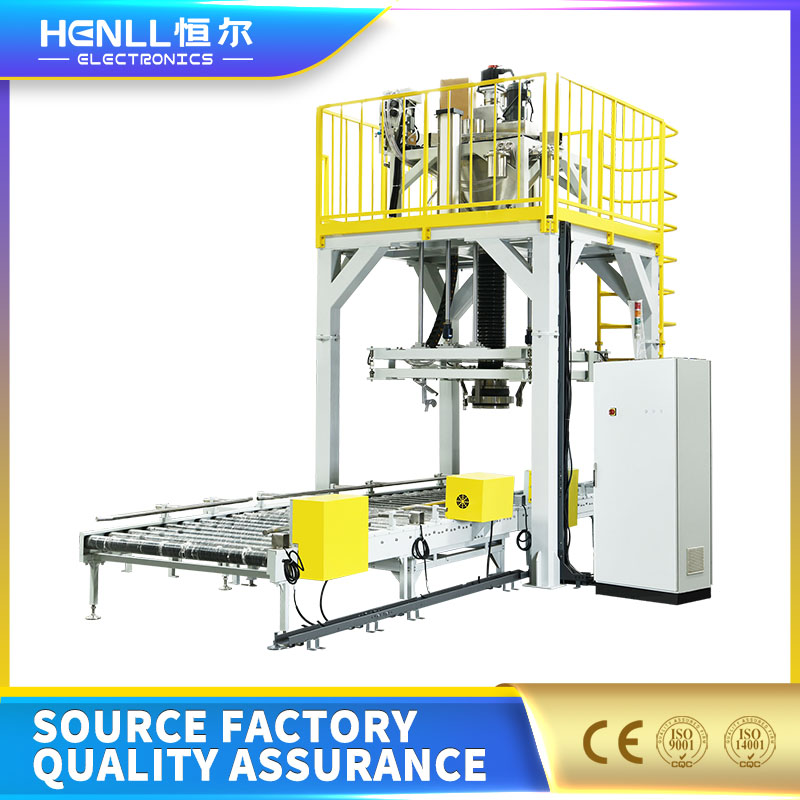
Hygroscopic Chemical Powders (e.g., Soda Ash, Calcium Chloride), due to their strong moisture absorption, tend to cake and adhere to walls during packaging. This causes poor filling efficiency and loose seals, resulting in a mere 75% packaging qualification rate for such materials using conventional equipment. Guangzhou Henll’s fully automatic large-bag powder packaging and sealing machine for the chemical industry employs humidity control and moisture-proof technologies, elevating the packaging qualification rate for high-humidity powders to 99.5%.
I. Challenges in Packaging High-Humidity Powders
Caking Blockages in Conveyance Lines
Absorbing ambient moisture leads to caking. Traditional screw conveyors experience frequent clogging, requiring hourly stoppages for cleanup.
Wall Adhesion Leading to Inaccurate Dosing
Powder buildup on the inner walls of dosing hoppers causes filling volume deviations up to ±2%, exceeding customer acceptance standards.
Moisture-Induced Seal Failure
Residual moisture at bag openings compromises heat-sealing integrity. After one month of storage, 15% of sealed bags develop cracks.
II. Henll’s Moisture-Resistant Packaging Solutions
Humidity Control & Anti-Caking Technology
Inert Gas Protection: Dry nitrogen (dew point ≤ -40°C) is injected into the packaging zone, reducing ambient humidity below 30% to suppress caking.
Anti-Stick Conveyance Design: Teflon® anti-adhesive coating lines the hopper interior, paired with high-frequency vibration mechanisms, cutting wall adhesion by 90%.
Dry Sealing & Storage Assurance
Hot Air Pretreatment: Hot air knife blows away residual moisture from bag openings before sealing.
Moisture-Proof Heat Sealing Process: Instant high-temperature sealing (180°C / 0.8 sec) rapidly fuses the seal layer. Combined with moisture-resistant film materials, bags remain intact for 3 months in storage.
III. Case Study: Soda Ash Enterprise in Jiangsu Province
After adopting Henll’s solution:
Packaging Qualification Rate: Rose from 72% to 99.6%, reducing customer complaints by 98%.
Downtime for Clog Clearance: Decreased from 2 hours/day to 10 minutes/day, boosting operational efficiency by 25%.
Rework Rate for Caked Material: Dropped from 18% to 1.2%, saving ¥220,000 annually in reprocessing costs.


